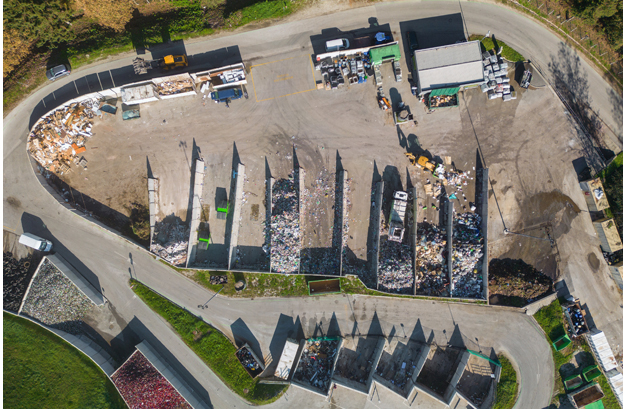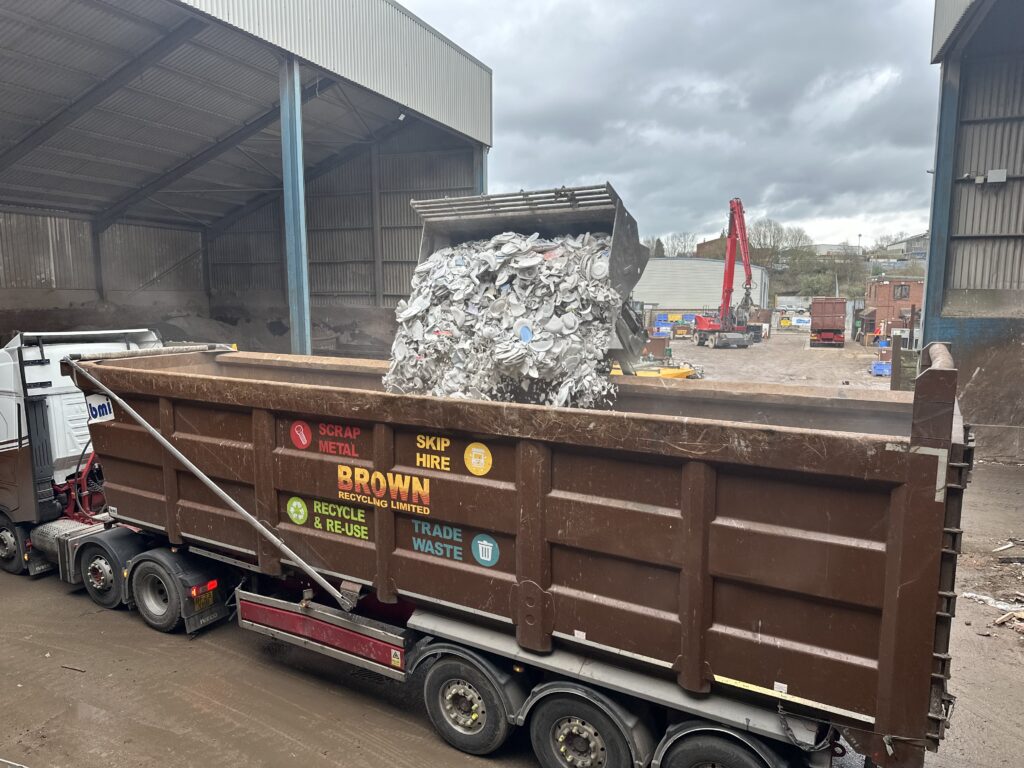The advisory note has been published on the WRAP Cymru website to help waste site designers and operators understand and work with sustainable drainage system known in short as ‘SuDS’. The note will also help SuDS approval bodies – SABSs – in Wales to implement the sustainable drainage systems. And, the note has been developed as a short-term solution to ensure a proportionate approach to SuDS is taken on waste sites.
There is similar guidance in England, but the difference between England and Wales is that Wales mandates SuDS for construction work with drainage implications of 100 sq m or more, whereas England does not currently mandate their use. However, there are consultations taking place in England to introduce SABs as there are in Wales so it is likely to become more widely relevant in the future.
The advisory note was commissioned by WRAP Cymru, in partnership with the Welsh Government and conducted by Eunomia Research & Consulting in collaboration with sustainable design and engineering firm Stantec.
Eunomia explained that the guidance can be applied “generally in terms of waste site design and the benefits of SuDS but there is also some more specific detail about how it all interacts between waste-site designers and the SuDs approval bodies (SABs) in Wales”.
Biodiversity
SuDS are seen as providing a variety of benefits to waste sites and the wider environment through reduced flood risk, improved water quality and management, increased visual appeal and the re-use of water for site cleaning or irrigation for green walls and roofs. They seek to replicate the natural water system through techniques such as infiltration via swales, wetlands and basins.
Designing waste sites with sustainable drainage has clear environmental benefits
Sophie Crossette of Eunomia Research and Consulting said: “Designing waste sites with sustainable drainage has clear environmental benefits by creating more green spaces, attracting greater biodiversity and reducing pressure on already stretched water providers. This guidance will be a great point of reference for anyone involved in the industry on how to integrate these systems into an operational waste facility when redeveloping or building a new waste site.”
The advisory note seeks to provide clarity around the practical application, and factors for consideration, when implementing SuDS on a waste site. It applies to sites which store and/or process waste, such as Waste Transfer Stations, Household Waste and Recycling Centres and Material Recycling Facilities.
The authors of the study explain that well-designed waste sites with SuDS can promote the wellbeing of workers and visitors, enhance property and land values and create green spaces to enhance the amenity of the site for local communities, without impacting on site operations.
The guidance is considered a useful tool to all waste site designers, operators, local authorities and approval bodies in how to balance the function of the site with SuDS and other regulatory requirements, such as waste permitting and pollution control.
Lisa Chilcott, operations support manager of WRAP Cymru said: “We are delighted to have been able to commission this work which we hope will enable both waste operators and SABs to get the most out of SUDS while still complying with environmental permitting requirements.”
This guidance will help steer designers towards the right solution for them
Neil McLean of Stantec said: “Sustainable drainage systems are incredibly useful to help waste sites lower their impact on the local environment. Each site is different and designers will have to find unique solutions but this guidance will help steer towards the right solution for them.”
Wales
The document notes: “This Advisory Note is non-statutory, non-technical guidance. It reflects law and practice in Wales and is not directly applicable elsewhere in the UK. Its purpose is to illustrate potential solutions for waste sites to comply with their permits and to achieve SuDS compliance. In the event of a conflict between this Advisory Note and statutory documents, priority is to be given to legislation and statutory guidance.
“As the mandatory requirement for SuDS is a relatively recent addition to Welsh Government legislation, selecting SuDS options that are consistent with pollution prevention and control is an area where site operators and local authority staff may have limited experience, leading to uncertainty about how best to meet the requirements.
“This Advisory Note aims to increase understanding for readers around how compliance with both sets of requirements can be achieved. In partnership with Welsh Government, WRAP Cymru has agreed to produce a non-technical Advisory Note to support the existing regulations and standards. It is understood that Welsh Government’s intention is to consult on a revision of the SuDS regulations and guidance… however this Advisory Note has been developed as a short-term solution to ensure a proportionate approach to SuDS is taken on waste sites.”












Subscribe for free